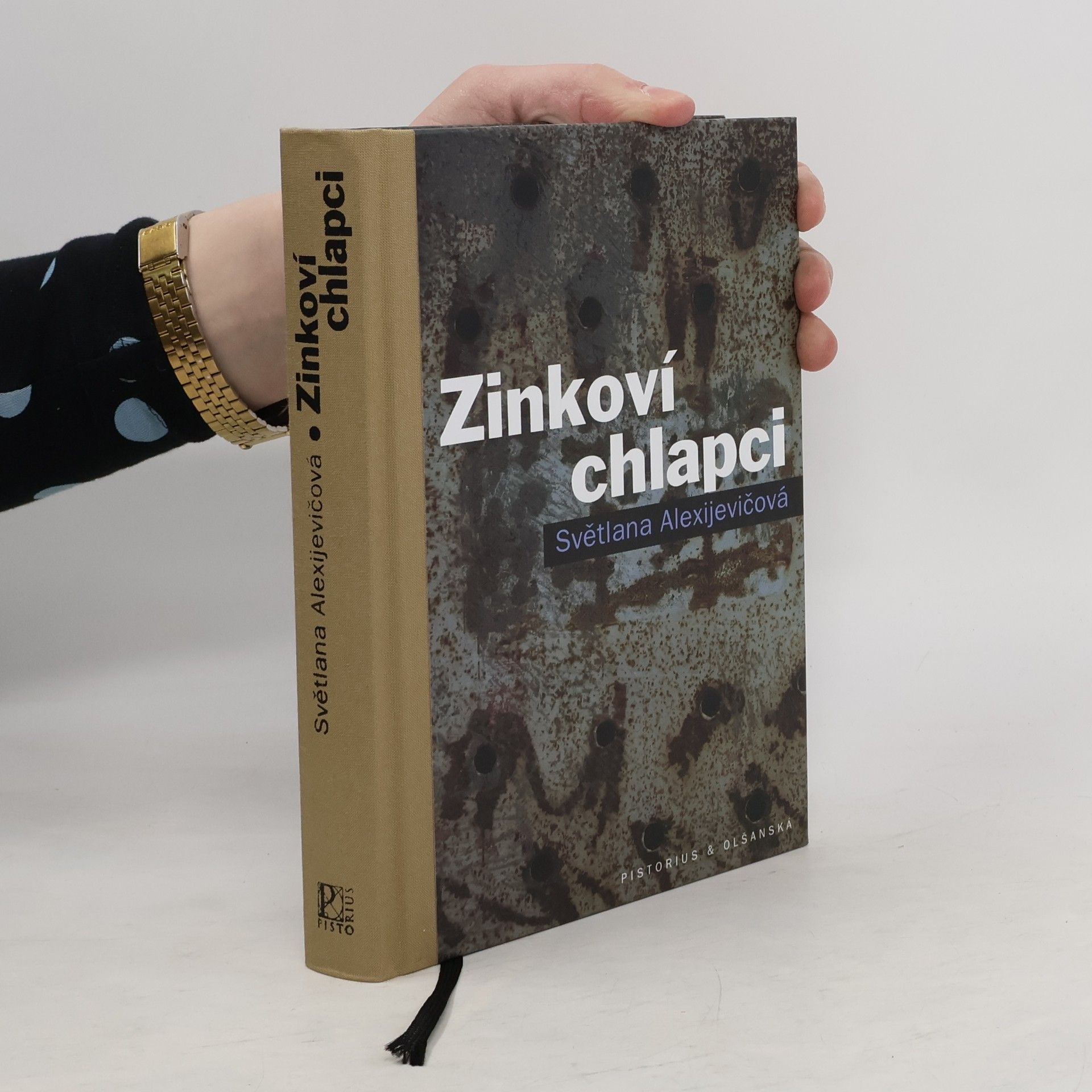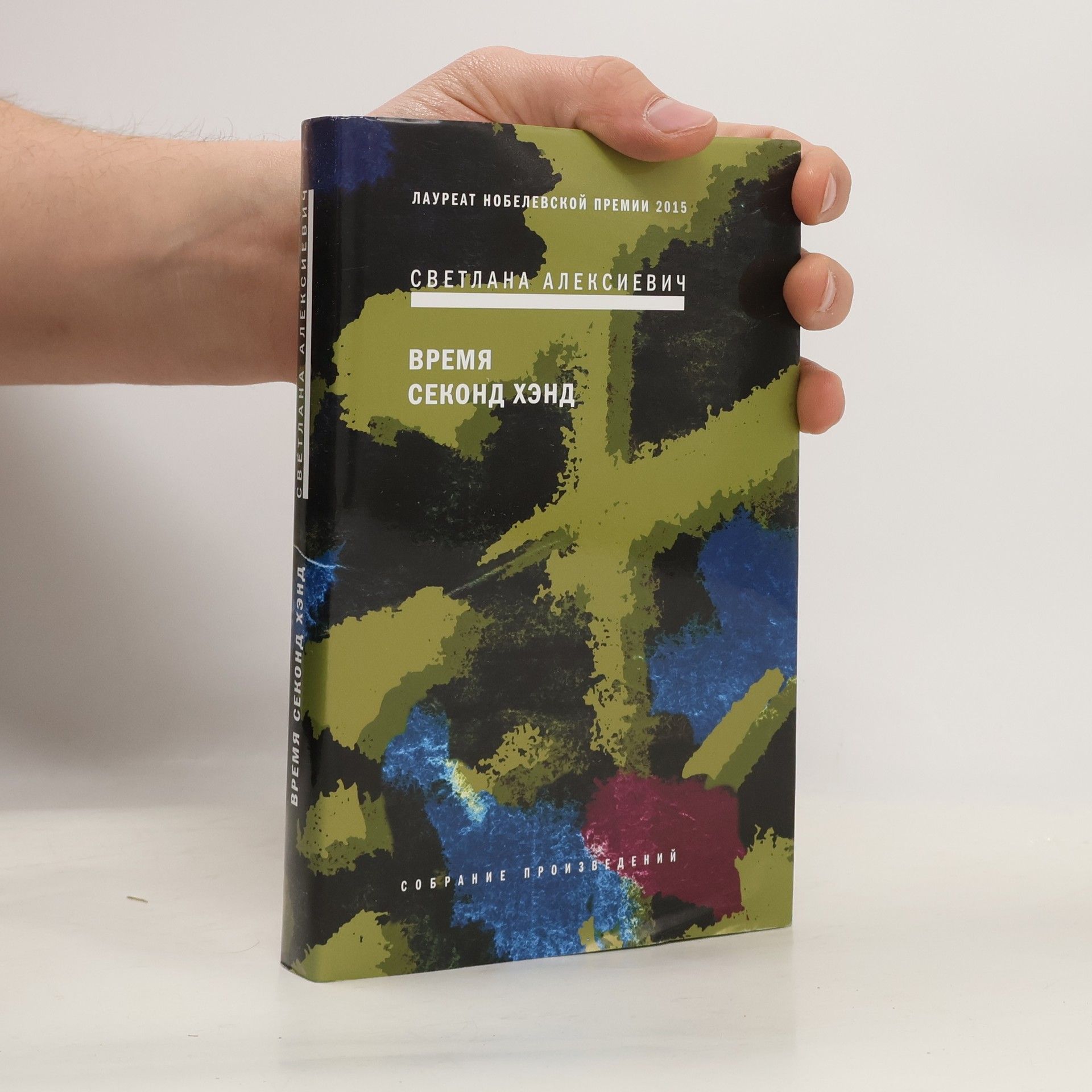Knižní prvotina pozdější laureátky Nobelovy ceny, napsaná v novém žánru „románu hlasů“, vznikala čtyři roky, během nichž autorka se stovkami žen, které se dobrovolně přihlásily do Rudé armády ve velmi mladém věku, vedla rozhovory. Mozaika jejich vzpomínek odhaluje nehrdinskou stránku Velké vlastenecké války, popisuje špínu, zimu, hlad, sexuální násilí a utrpení, a vytváří tak hluboce lidské a nepatetické protiválečné svědectví. Kniha byla poprvé publikována v Sovětském svazu v roce 1984, následovalo knižní vydání a český překlad v roce 1986, avšak obě verze byly cenzurovány. Po osmnácti letech se autorka k dílu vrátila, přepracovala ho, zrekonstruovala cenzurované části a doplnila nové materiály, včetně rozhovoru s cenzorem a úryvků ze svého deníku. V roce 2002 vyšla kniha v nové, definitivní podobě, a během patnácti let byla vydána ve 44 zemích, čímž se stala autorčiným nejúspěšnějším dílem.
Svetlana Alexievitch Knihy
Světlana Alexijevičová vytváří literární portréty života v Sovětském svazu a po jeho rozpadu skrze osobní prožitky jednotlivců. Ve svých dílech používá rozhovory, aby z nich vytvořila koláž rozmanitých hlasů. Jako novinářka se svými „dokumentárními romány“ pohybuje na pomezí reportáže a fikce. Její významná díla tvoří rozsáhlý cyklus Hlasy utopie. Alexijevičová ve svých knihách kriticky zkoumá politické režimy Sovětského svazu i pozdějšího Běloruska.

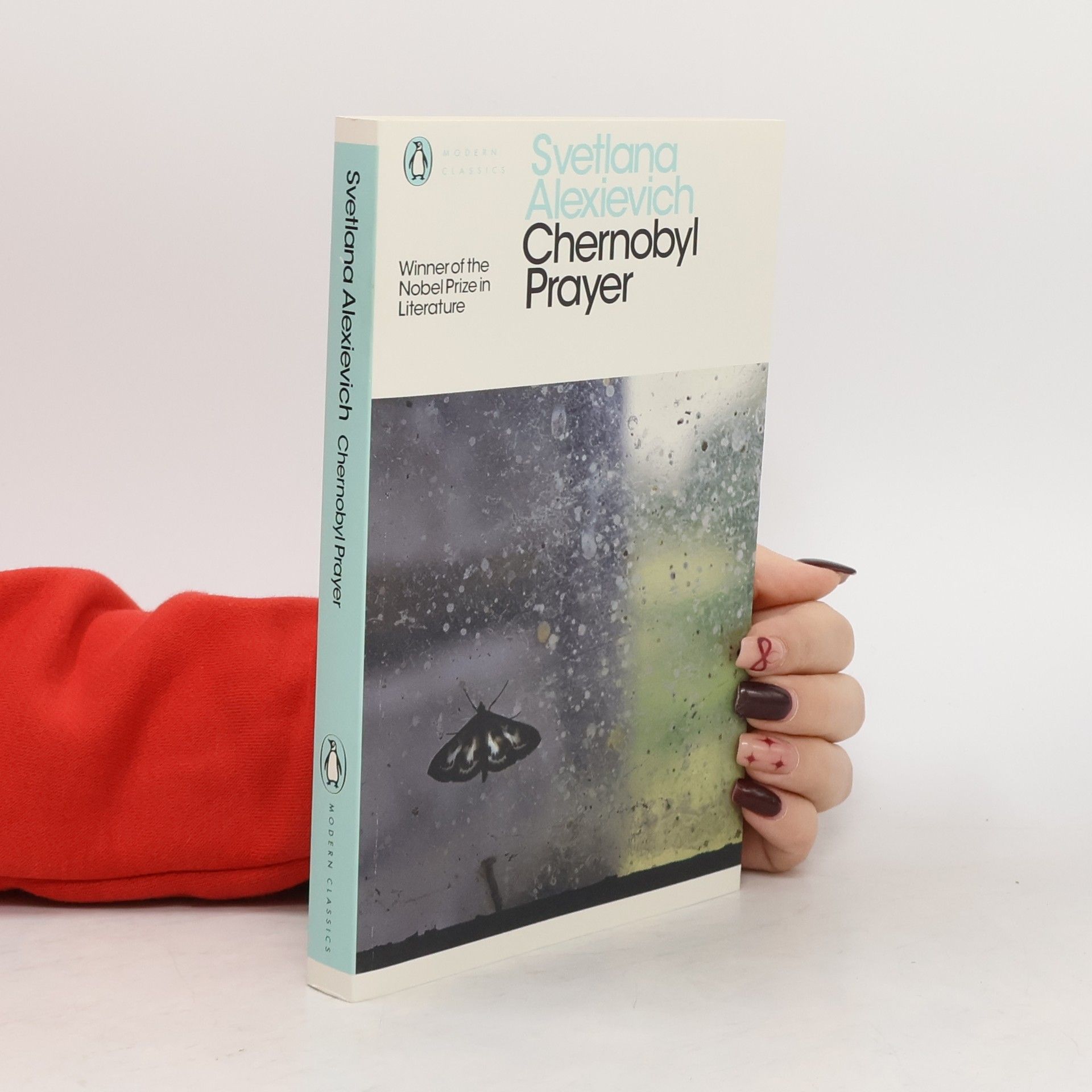
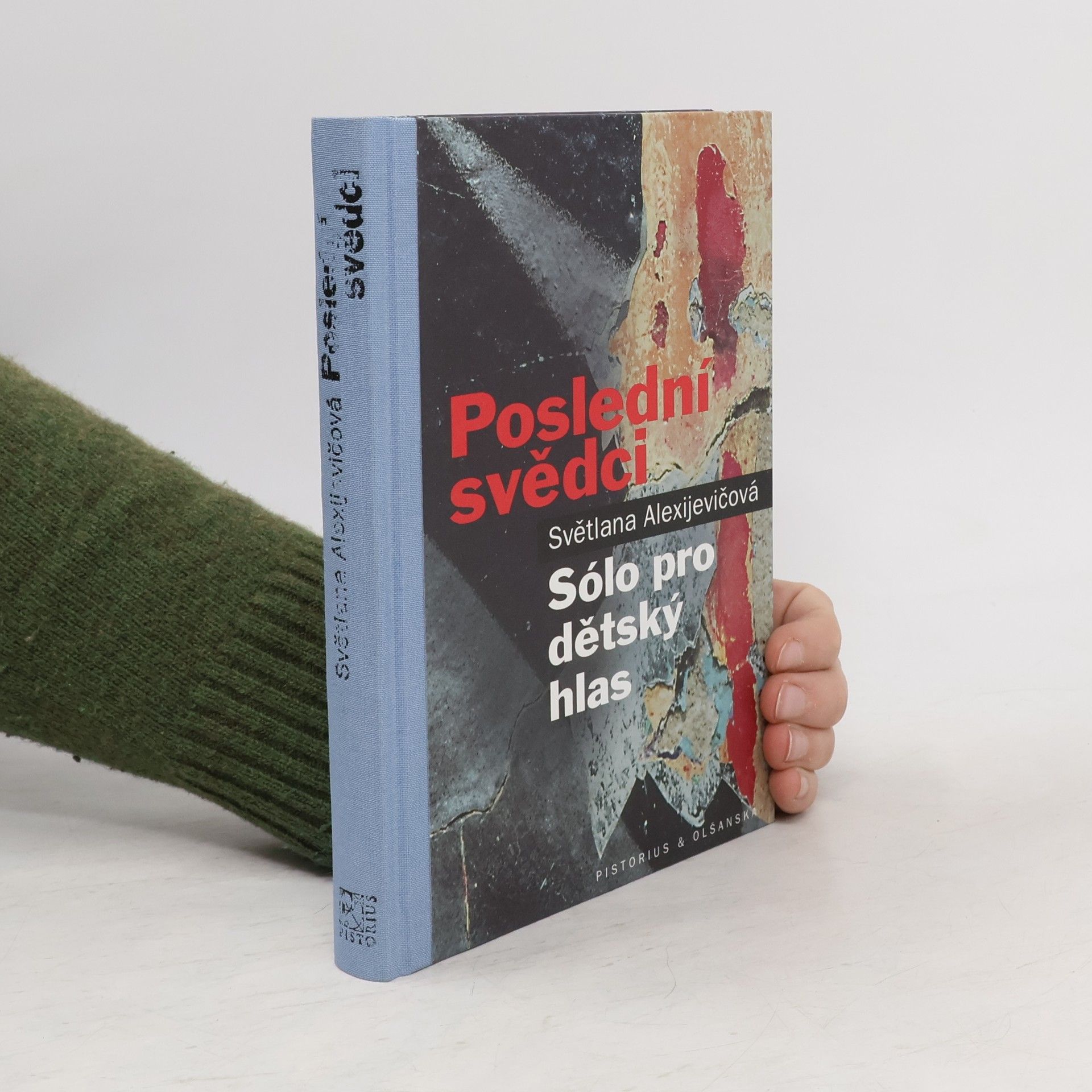

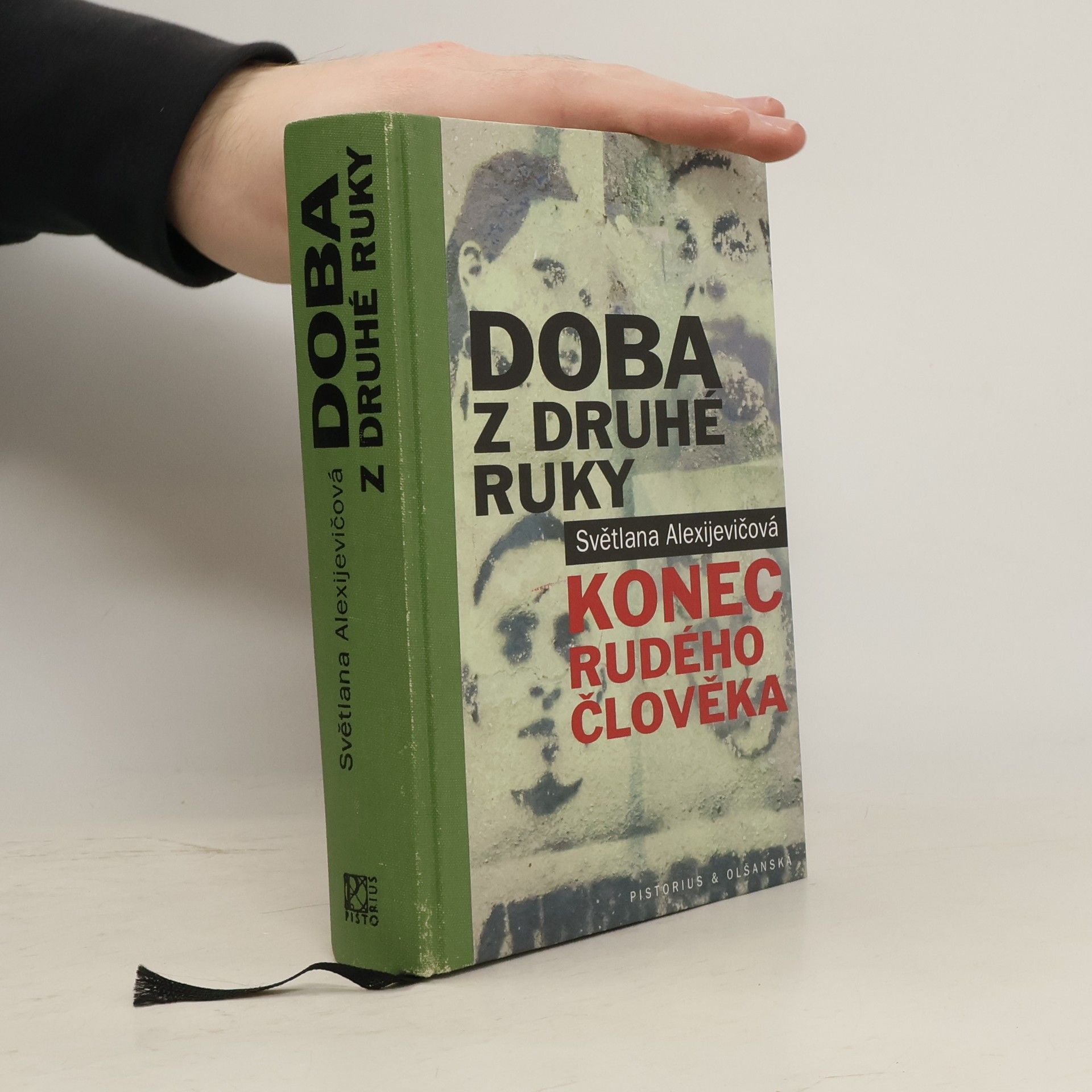

Doba z druhé ruky. Konec rudého člověka
- 492 stránek
- 18 hodin čtení
Kniha Doba z druhé ruky nese podtitul „Konec rudého člověka“ a autorka se v ní zabývá koncem komunistického režimu, nadějemi, zklamáními, frustracemi a dezorientací, které přinesla dvě desetiletí následující rozpad sovětského impéria lidem žijícím na jeho území. Čtenáři předkládá desítky příběhů a názorů lidí z nejrůznějších částí politického i ekonomického spektra. Před námi tak defilují rozmanité osudy a zážitky, z nichž však postupně vyvstávají některá společná traumata a obsese. Většina hrdinů této knihy považuje za vrchol svobodného vzepětí ruské společnosti srpen 1991, kdy do ulic Moskvy vyšly statisíce Rusů, aby se postavily tankům pučistů, pokoušejících se zrušit demokratické reformy předchozích dvou let a obnovit sovětskou vládní moc. V očích většiny lidí, jejichž svědectví autorka uvádí, to byla chvíle velkých, byť nepříliš konkrétních nadějí, zatímco následující vývoj, bezpečnostní anarchie a příchod tržního hospodářství přinesly inflaci, desorientaci, zklamání, hospodářský pokles a korupci. Často se ozývá lítost nad tím, že Sovětský svaz „prohrál studenou válku“ a ztratil velmocenské postavení, a jakkoliv snad každý, jehož hlas v knize zazní, měl svou vlastní tragickou zkušenost se stalinskými zločiny, převažuje schizofrenní pocit, že i když byl socialistický režim špatný, lidé v něm žili pro krásné myšlenky, zatímco dnes se „starají jen o coca-colu“ – o přízemní hmotné věci.
Last Witnesses (Adapted for Young Adults)
- 288 stránek
- 11 hodin čtení
A powerful portrait of the personal consequences of war as seen through the innocent eyes of children, from a Nobel Prize-winning writer. Nobel Prize-winning writer Svetlana Alexievich delves into the traumatic memories of children who were separated from their parents during World War II--most of them never to be reunited--in this this young adult adaptation of her acclaimed nonfiction "masterpiece" (The Guardian), Last Witnesses: An Oral History of the Children of WWII. The personal narratives told by those who were children during WWII and survived harrowing experiences, are astounding. So many children were separated from their loved ones in the midst of the terror and chaos. As a result, some grew up in orphanages or were raised by grandparents or extended family; others were taken in and cared for by strangers who risked punishment for such acts. Still others lived on their own or became underage soldiers. Forthright and riveting, these bravely told oral histories of survival reveal the heart-rending details of life during wartime while reminding us that resilience is possible, no matter the circumstances.
Uvedením Posledních svědků završujeme vydání pěti svazků nositelky Nobelovy ceny, které autorka považuje za své kompletní knižní dílo. Jedná se, stejně jako v ostatních jejích svazcích, o knihu sestavenou ze stovek rozhovorů, jež Alexijevičová vedla s účastníky dějinných událostí. V případě Posledních svědků jimi byli převážně váleční sirotci, kteří přežili vyvražďování běloruského obyvatelstva německými zvláštními komandy během druhé světové války. Kniha přináší mimořádné svědectví o nepředstavitelném rozsahu této katastrofy, při němž němečtí fašisté zničili 619 vesnic i s obyvatelstvem. A rovněž o traumatech, jež válka přináší dětem.
Chernobyl Prayer : a chronicle of the future
- 304 stránek
- 11 hodin čtení
Winner of the Nobel Prize in Literature 'Absolutely essential and heartbreaking reading. There's a reason Ms. Alexievich won a Nobel Prize' - Craig Mazin, creator of the HBO / Sky TV series Chernobyl - A new translation of Voices from Chernobyl based on the revised text - In April 1986 a series of explosions shook the Chernobyl nuclear reactor. Flames lit up the sky and radiation escaped to contaminate the land and poison the people for years to come. While officials tried to hush up the accident, Svetlana Alexievich spent years collecting testimonies from survivors - clean-up workers, residents, firefighters, resettlers, widows, orphans - crafting their voices into a haunting oral history of fear, anger and uncertainty, but also dark humour and love. A chronicle of the past and a warning for our nuclear future, Chernobyl Prayer shows what it is like to bear witness, and remember in a world that wants you to forget. 'Beautifully written. . . heart-breaking' - Arundhati Roy, Elle 'One of the most humane and terrifying books I've ever read' - Helen Simpson, Observer
Modlitba za Černobyl
- 229 stránek
- 9 hodin čtení
Šokujci pohľad na jednu z najväčších nukleárnych katastrof sveta. Autorka prostredníctvom výpovedí mnohých ľudí (likvidátorov, odborníkov, ale aj bežných rodín) zobrazuje osud bieloruského a ukrajinského národa. Kniha je akýmsi kukátkom do obdobia, keď z roztaveného reaktoru vyletovali do ovzdušia rádioaktívne splodiny, ktoré navždy pochovali krajinu a mnohé obce zo zasiahnutých oblastí. Obrazy zúfalých ľudí, evakuácia 30 km zóny, ale aj práca nič netušiacich mladých likvidátorov. Pri čítaní si začnete vážiť svoj život a bežné starosti, pretože žiť s Černobylom je žiť s neustálym strachom o vaše zdravie a o zdravie vašich detí. Absurdné opisy starých ľudí v zóne, smutný obraz vdovy po požiarnikovi a jej hrozné svedectvo o dlhom umieraní manžela, choré deti v nemocnici a začarovaná krajina opustenej zóny, v ktorej je všetko otrávené.
Zinkoví chlapci
- 312 stránek
- 11 hodin čtení
Zinkoví chlapci je knihou o válce v Afghánistánu. Je sestavena z autorčiných rozhovorů se sovětskými vojáky, kteří Afghánistán přežili, a s příbuznými těch, kteří se odtud vrátili v zinkových rakvích. Alexijevičová sama Afghánistán v době války navštívila a tuto zkušenost považuje za zlom ve svém uvažování o podstatě sovětského režimu i o oprávněnosti jakékoliv války. Kniha je ostře protiválečná, Afghánistán ukazuje jako místo naprosté devalvace ceny lidského života a rozvratu mravních hodnot a současně obžalovává Sovětský svaz z nezájmu o své vlastní vojáky, které posílá na smrt. Kniha je doplněna materiály dokumentujícími soudní proces, který byl proti autorce v Bělorusku v souvislosti s vydáním této knihy veden.
La guerre n'a pas un visage de femme - Prix Nobel de Littérature 2015
- 414 stránek
- 15 hodin čtení
La Seconde Guerre mondiale ne cessera jamais de se révéler dans toute son horreur. Derrière les faits d'armes, les atrocités du champ de bataille et les crimes monstrueux perpétrés à l'encontre des civils, se cache une autre réalité. Celle de milliers de femmes russes envoyées au front pour combattre l'ennemi nazi. Svetlana Alexievitch a consacré sept années de sa vie à recueillir des témoignages de femmes dont beaucoup étaient à l'époque à peine sorties de l'enfance. Après les premiers sentiments d'exaltation, on assiste, au fil des récits, à un changement de ton radical, lorsque arrive l'épreuve fatidique du combat, accompagnée de son lot d'interrogations, de déchirements et de souffrances. Délaissant le silence dans lequel nombre d'entre elles ont trouvé refuge, ces femmes osent enfin formuler la guerre telle qu'elles l'ont vécue. Un recueil bouleversant, des témoignages poignants.
Время секонд хэнд
- 512 stránek
- 18 hodin čtení
